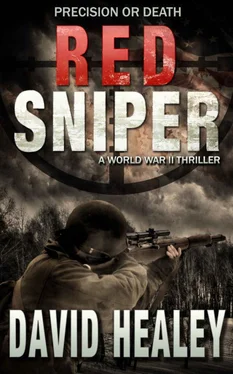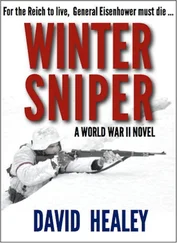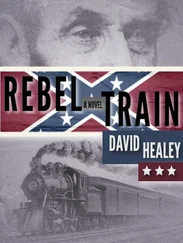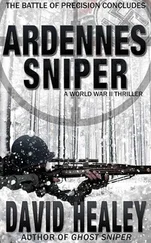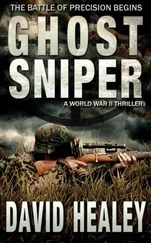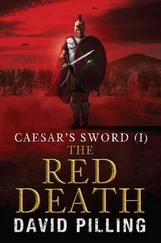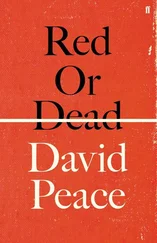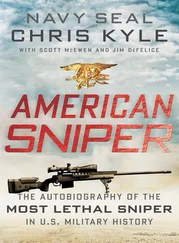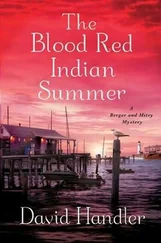Then, a woman’s scarf was found tied to Gate 3. Inna’s scarf. He recognized it by the color—it had been red once, but washed so many times that it had faded to pink. It was clearly a signal of some kind. Together with her absence and the young soldier’s story of seduction, it was damning evidence.
When informed of the escape, the commandant had simply ordered Barkov to handle it. He was a soulless bureaucrat who saw each prisoner as a unit to be accounted for, like a can of beans in a storeroom. He busied himself with ledger books that tallied camp expenses and work output. He kept careful records on how many miles of track were laid each month. In the eyes of Moscow, it made him the perfect commandant.
Quickly, Barkov assembled a team to pursue the escaped Americans and Inna. In between barking out orders, he hummed happily to himself. Someone else could lead the work party today; he and The Mink were going hunting.
• • •
Prompted by Barkov’s question, the Mink considered the empty landscape. There was no indication of the direction taken by the girl and the escaped prisoners. The Mink thought about that as he smoked an unfiltered cigarette that seemed to be one part cheap tobacco and three parts sawdust. What lay to the north but arctic wastes? Hundreds of miles to the south lay Moscow, which seemed an unlikely destination. China and Mongolia were hundreds of miles distant. But to the east, Finland was barely two hundred miles away.
If you were an American, your only hope lay in that direction.
The Mink jerked his chin that way, then exhaled a cloud of the foul cigarette smoke toward the sun, still hovering above the eastern horizon.
“Ah, that makes sense,” Barkov said. He waved his arm toward a squad of soldiers in a follow me gesture. “They won’t have gone far.”
Barkov led the way. They did not get far because there was no clear trail to follow.
Along with Barkov and the Mink there was Bunin, a local tracker who had brought his dogs, and six soldiers detailed from the Gulag garrison. Barkov hardly thought that they would need half a dozen soldiers to help catch the escapees—he and the Mink could do that handily—but the soldiers would be good workhorses to carry back any bodies. Normally, he wouldn’t have bothered with that. However, the Americans were special prisoners, so the Gulag commandant might need bodies to show some commissar if there was interest from Moscow. Barkov sighed. If he had been given his way, those annoying Americans would have been dead some time ago. That was politics for you.
One of the soldiers detailed to Barkov’s squad was Dmitri, the luckless boy whom the witch Inna Mikhaylovna had tricked into abandoning his post.
“You are growing soft,” the Mink said, nodding at the young man, who by all rights should have been taken out and shot.
“This is a much better punishment,” Barkov said. “Besides, do you think he is the first young man to be misled by his khuy ?”
Barkov was thinking about the incident in Berlin that had got them sent to this Gulag camp months before. Most commissars would have shot them to avoid the paperwork. They had gotten a second chance—Barkov was willing to give Dmitri a similar opportunity. He was young.
“Soft,” the Mink repeated.
“The war is over. We can afford to be generous.”
The Mink was not so sure. “If he gives us any trouble, I will cut off his khuy for him.”
Barkov laughed. “Cheer up, my friend. We are on a hunt! What could be better?”
Barkov was in an ebullient mood. There was nothing that was so much sport as chasing a prisoner. His only concern was that this hunt would be over all too soon. He doubted that the Americans or Inna had gotten very far. In fact, he was surprised that they were not visible somewhere on the horizon. He put his German-made binoculars—a prize from the sack of Berlin—to his eyes. Nothing but trees, rough open ground, and more trees.
He turned to Bunin, whose trio of dogs sniffed halfheartedly at the ground. No trail yet. They had expected to pick up the trail near the gate, but that had not been the case. The frozen ground was inscrutable. Not so much as a footprint to give them a clue.
“Those dogs of yours are worthless,” Barkov said. “Don’t expect me to pay to feed them.”
Bunin grunted. He was a big man—as tall as Barkov, but not as heavy through the shoulders. From a distance, it would be easy to mistake one for the other. But size was where the similarity ended. Though Bunin had a fierce face, weathered by sun and wind, he was soft and gentle at heart, known to prefer the company of his beloved dogs to that of people.
“There is no scent,” he said simply.
Barkov had given him the scarf that Inna had tied to the gate, and Bunin had made sure that his dogs got a snout full of her smell. The dogs had followed the scent toward the village, then lost it.
“The village?” the Mink wondered. “Do you think they are hiding there?”
Barkov shook his head. “Who would be foolish enough to hide them? Besides, the Americans wish to escape. It would be like a fish hiding in a net. No, there is nothing for them in the village.”
What Barkov did not admit, even to the Mink, was that he was reluctant to search the village. The Gulag compound relied on the village much more than the village relied on the compound. Some of the prison guards, right up to the commandant, had taken “outpost wives” there. No one would take kindly to a disruptive search. Barkov knew better than to kick a hornet’s nest.
“No, they are on the run. Let us give chase! Ha, ha!”
He called Bunin over and had him work his dogs between the prison gate and the village on the eastern side. First, they moved a couple hundred feet off the road that connected the Gulag camp and village so that they could pick up a fresh trail away from the well-traveled road. Then the dogs worked back and forth, back and forth, moving in expanding circles as Bunin nudged them along with low, gentle words. Barkov was no expert on dogs, but he had to admit that it was fascinating to watch them work. Grudgingly, he thought that perhaps Bunin did know what he was doing, after all.
Barkov looked up at the leaden sky. “We haven’t got all day, Bunin!” he called.
“You cannot make bread bake faster,” Bunin said.
The Mink laughed. He was simple that way, Barkov thought.
Instead of laughing, Barkov cursed. They were losing precious daylight hours to Bunin’s lazy dogs while the prisoners increased their lead.
The nights were getting colder. He sent Dmitri back for rations and blankets in case they had to spend the night on the taiga, telling him to run all the way.
Finally, one of the useless dogs had a hit. The dog yelped with a new, excited tone. Bunin raised an arm aloft with the scarf, as if to mark the spot.
The other dogs joined in. At first, they followed the road toward the village, which confounded Barkov and the Mink. Had the prisoners escaped into the village, after all?
But the trail did not go as far as the houses. Bunin called the dogs back to where they had first caught the scent.
“Clever,” Barkov admitted, seeing what the prisoners had done. They had muddled their trail by backtracking to the village, partially circling it, and then striking out at a random point. It created a confusing trail to follow. They had anticipated the dogs and bought themselves more time with that simple maneuver. Barkov had the niggling thought that perhaps he had underestimated his quarry. Where did an American pilot learn to outsmart hunting dogs?
No matter—Bunin had found the trail. Now they had to wait until Dmitri returned with supplies.
“What took you so long?” Barkov demanded in frustration, once the young soldier returned. Barkov took out his whip and beat him a few times for good measure.
Читать дальше
